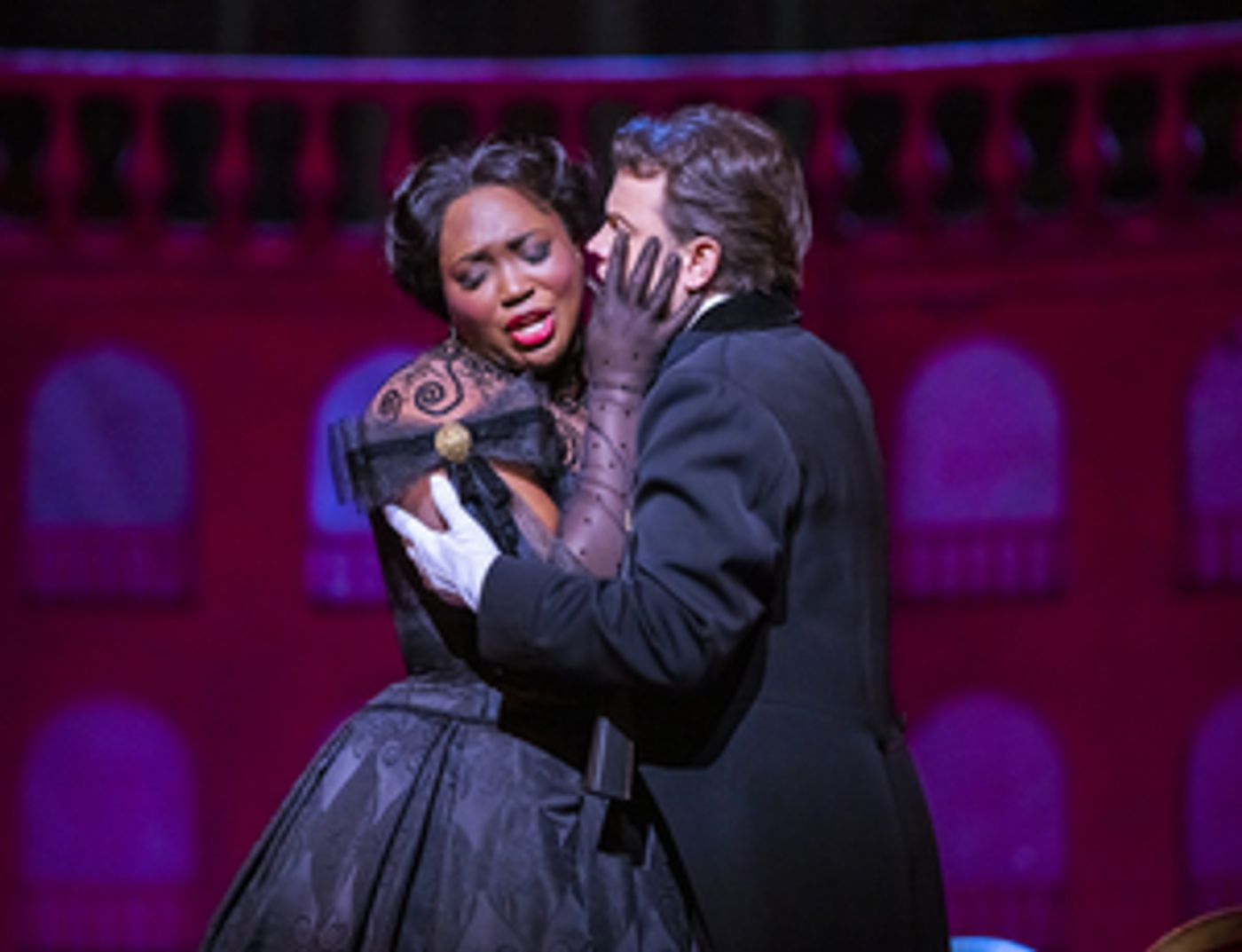Review: LA TRAVIATA, Royal Opera House
Angel Blue is unmissable in Richard Eyre's much-loved production

![]() As Giuseppe Verdi fans know, the Italian is currently the most popular opera composer on the planet, both in terms of performances and productions.
As Giuseppe Verdi fans know, the Italian is currently the most popular opera composer on the planet, both in terms of performances and productions.
Richard Eyre's gorgeous interpretation of Verdi's La Traviata debuted in 1994 and has been ever-present on the Royal Opera House roster since. This season alone, we will have six different casts featured in over 27 performances, an epic undertaking for any company.
Quite why people (and the ROH) return time and time again to Eyre's particular version is obvious from the off. The early scenes are visually impressive but there's much more than just eye candy here: the opulent design and detailed period costumes immediately pull the audience away from Covent Garden and into 19th-century Paris. The casual decadence of the era is signposted everywhere, not least in the furniture, the clothing, and the way Violetta, one of the Paris' grandes horizontals, grabs the attention of everyone in the auditorium, either on stage or in the audience.
There's no two ways about it: Angel Blue is a magnificent Violetta. I first saw her as a scene-stealing Musetta in a 2013 run of La Bohème over at the ENO. Since then, she has quickly grown in stature, taking over the part of Mimi when that production returned the following year, and now the American soprano is bringing a bucketful of Musetta's sass to her latest role.
There is plenty of shared DNA between Violetta and Musetta, with both women keen to explore all life has to offer and not to be tied to one man. Blue is especially adept at bringing out that side of Violetta through superb acting and chemistry with her co-lead, Ukrainian tenor Dymtro Popov as Alfredo Germont.
Blue blends exquisite phrasing with a powerful voice to almost violent effect. With seemingly little effort, her performance makes one of London's grandest stages seem more intimate, enhancing the immersive effect of Bob Crowley's already impressive set design to a considerable degree.
Popov does well to keep up with her but struggles occasionally with the Italian and is somewhat overshadowed by Bulgarian baritone Vladimir Stoyanov's rich turn as Alfredo's father; the latter does especially well to maintain the demands of the particular Verdi baritone style which requires a voice capable of reaching consistently the highest part of the baritone range.
All three singers combine well in the second act, each duet building on the emotional power of the last as Violetta makes her heartbreaking decision. Down in the pit, Italian conductor Giacomo Sagripanti keeps the tempo beautifully, especially during the invigorating brindisi scene and the tragic final act.
Eyre's take on La Traviata quite rightly deserves to be seen as a jewel in ROH's crown, but Angel Blue lifts it to a new level and makes it frankly unmissable.
La Traviata continues until 18 April.
Images: Tristram Kenton
Reader Reviews
Videos

